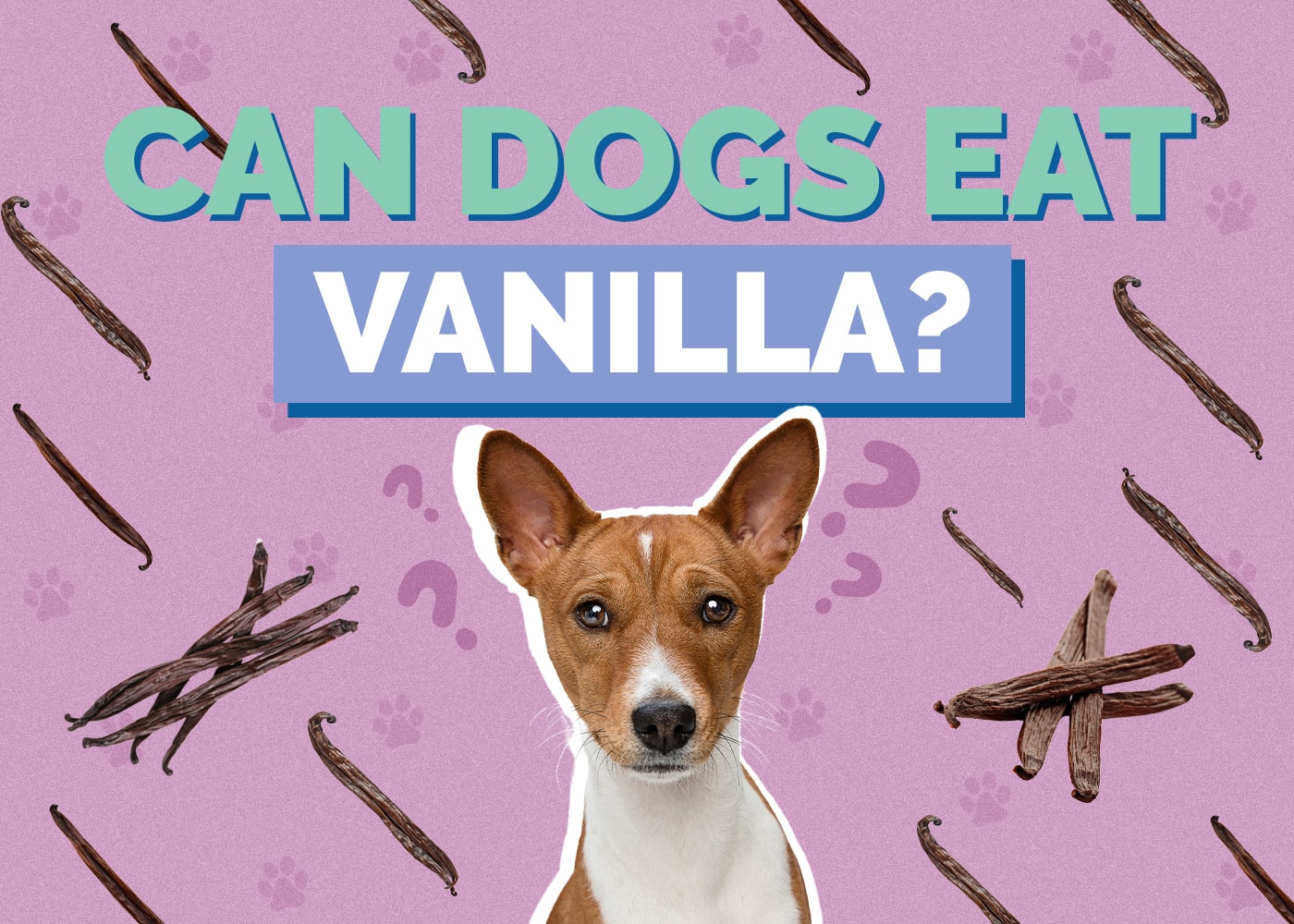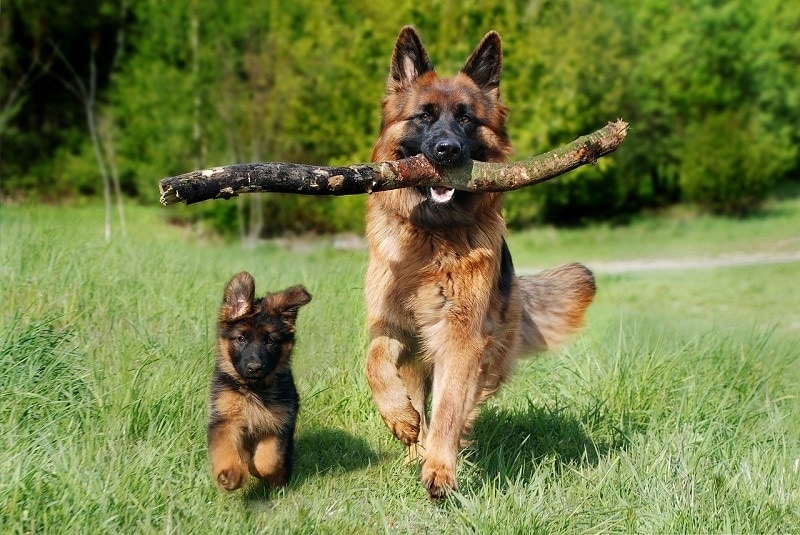Can Dogs Eat Vanilla? Vet-Approved Facts & FAQs
By Kit Copson
Updated on

Vanilla is commonly used to sweeten and add flavor to some of our favorite desserts, but is it okay for dogs to indulge in it? While a simple vanilla pod isn’t likely to harm your dog, vanilla extract is another matter altogether. Dogs should never eat vanilla extract due to its potentially toxic effects. Read on to find out why this is the case.
Forms of Vanilla
Before we dive into why dogs shouldn’t be allowed to eat vanilla extract, it’s important to know the basics of the various forms vanilla comes in. In nature, it comes in the form of a pod. The vanilla pod is typically the most expensive form of the spice to buy and can be crushed to create a powdered form of vanilla.
On the other side of the coin, you’ve got vanilla extract, which is a liquid manufactured by combining vanilla with water and alcohol. Vanilla extract is typically a cheaper alternative to pure, natural forms of vanilla, and is sometimes used to make vanilla flavorings and bean paste.

Why Is Vanilla Extract Bad for Dogs?
Vanilla extract is made with alcohol, which is toxic to dogs. If your dog manages to eat the contents of a bottle of vanilla extract, it could cause poisoning, signs of which include disorientation, vomiting, diarrhea (sometimes with blood), seizures, tremors, breathing difficulties, hyperactivity, and dehydration. Toxicity even has the potential to cause death in severe cases.
What Should I Do If My Dog Ate Vanilla Extract?
Even if your dog seems perfectly normal or you suspect they only ate a little vanilla extract, it’s best to contact your vet to get their take on the situation and find out whether they should be brought in for a checkup.
Sometimes, signs of poisoning don’t start to show until 30 minutes to several hours after the toxin has been consumed, which is why it’s wise to be proactive. If your dog begins to show signs of poisoning, they must be seen by a vet immediately.
Fortunately, not all cases of poisoning are severe—some dogs are only mildly affected. If the dog is severely affected and doesn’t receive treatment, however, poisoning could be fatal. Much depends on how big the affected dog is and how much of the vanilla extract they managed to eat.

What If My Dog Ate a Vanilla Pod?
Vanilla pods don’t benefit dogs nutritionally and shouldn’t be offered to them for this reason, but if your dog hoovers up part of a pod that fell on the floor, it generally won’t hurt. At worst, your dog may experience an upset tummy, but you likely have nothing to worry about.
Can Dogs Eat Baked Foods Containing Vanilla Extract?
Even though baked items like cakes and cookies don’t usually contain much vanilla extract, it’s still unwise to feed them to your dog. For one thing, dogs shouldn’t eat vanilla extract at all due to its alcohol content. Secondly, baked goods and sweets are high in sugar and calories, which could cause weight gain and dental damage if your dog eats them on a regular basis.
Last but certainly not least, baked items sometimes contain other ingredients that are toxic to dogs, including raisins, grapes, chocolate, caffeine, macadamia nuts, xylitol, and alcohol.
Final Thoughts
Time for a recap before we let you go. While vanilla pods (the natural form of vanilla) aren’t necessarily harmful to dogs, they’re not healthy for them, either, and shouldn’t be offered. As for vanilla extract, this is toxic to dogs and should never be offered to them.
If you suspect that your dog has eaten even a little bit of vanilla extract, please let your vet know to be on the safe side.
- Related Read: Can Dogs Eat Vanilla Ice Cream?
Featured Image Credit: Africa Studio, Shutterstock












